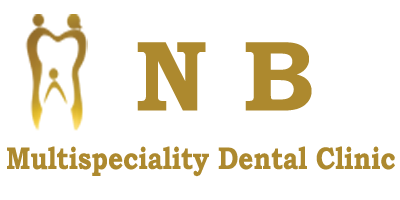Dental Sleep Medicine is a highly specialized domain in dentistry concerned with the study of oral and maxillofacial causes and consequences of sleep-related problems.
Sleep-related breathing disorders include snoring and obstructive sleep apnea (OSA). Additionally, there are other sleep disorders relating to dentistry including sleep-related orofacial pain, sleep-related xerostomia (dry mouth), hypersalivation, sleep-related gastroesophageal reflux disease (GERD) and sleep bruxism (nighttime grinding of teeth).
Snoring is a commonly known disorder in which there are audible vibrations of the upper airway. In Obstructive Sleep Apnoea, due to repeated obstruction of the collapsible part of the upper airway, there is oxygen deficiency and the person sleeps less deeply and/or wakes up frequently.
Orofacial pain can be dentoalveolar in nature, meaning related to teeth and the supporting tissues around them, musculoskeletal (pain that originates from muscles or joints), neuropathic (pain that originates from the nervous tissue) or vascular (pain that originates from the vascular or perivascular tissues). Headaches are also a type of orofacial pains. All forms of orofacial pain can affect a person’s sleep and ultimately overall health and well-being.
Oral moistening disorders include xerostomia and hypersalivation. In Xerostomia, a person has dry mouth and feeling of dryness in the throat. This could be due to many reasons like sleeping with the mouth open, or snoring or some medical conditions like Diabetes. Hypersalivation means increased salivary production. GERD is when there is backflow of stomach acid into the distal oesophagus and sometimes even into the mouth. Mandibular movement disorders refer to disorders of the lower jaw including sleep bruxism, dyskinesia, dystonia and other conditions.
Sleep bruxism (grinding of teeth during sleep) is usually a symptom of OSA or is seen when there is imbalanced occlusion, meaning improper contact between upper and lower teeth. This harmful habit of teeth grinding can also happen if one suffers from physical and mental stress. Bruxism can be of 2 types- Passive and Active.
In OSA (obstructive sleep apnea) the tongue tends to fall back, blocking the throat and breathing gets obstructed. When this happens, the brain sends a signal to regain the air passage, the lower jaw or mandible gets thrust forward so as to create more space in the back of the throat to make breathing easier. This action where one moves the teeth/jaw forward to open the airway translates into anterior bruxism. This movement that happens each time the airway is compromised is called passive bruxism.
In some instances, there may be premature contact between upper and lower teeth due to loss of teeth. Or the contact may be incorrect due to a faulty filling or crown. When this happens, the brain tries to overcome such imbalanced contacts between upper and lower teeth by grinding, till it wears out. Over time, the cusps of the teeth become flat and smoothened out completely. This disorder which results in generalized attrition of teeth is called active lateral bruxism.
Dentists play a crucial role in identifying such symptoms of OSA (obstructive sleep apnea) and sleep disorders and treating them. OSA is normally diagnosed by doing a Sleep Study. The treatment needed depends on the severity of the problem. Different levels of OSA severity is graded on the Apnea-Hypopnea Index (AHI) scoring.
For mild cases, a Sleep Appliance is recommended. Here we offer a comprehensive solution based on the principles of Neuromuscular Dentistry (NMD). In this treatment modality, we design a custom-made oral appliance therapy (OAT) or Orthotic with the help of Neuromuscular principles. In this we study the nerves and muscles that guide and indicate the ideal position for the jaws. Based on each person’s specific characteristics, we design the orthotic which provides adequate support, stabilizes the teeth, joints, muscles, corrects alignment and provides comfortable cushioning. Following this, OSA and the ill-effects of any premature or bad contacts are controlled so you enjoy the best IDEAL OCCLUSION.
For moderate cases, a Sleep Appliance along with CPAP or BiPAP device is recommended. For severe cases, corrective surgery may be done by a Maxillofacial Surgeon to increase the airway.
Treatments for such sleep disordered breathing (SDB) and sleep disorders in the mouth or masticatory system must be done only by Dentists certified and specially trained in Dental Sleep Medicine.
- From single tooth replacement to full arch replacement for any kind of patient is done here .




